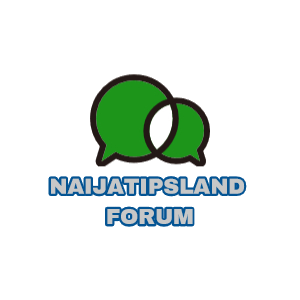
So I have a friend that has been teaching me some Twi (the most spoken language in Ghana). I noticed there were some choices in spelling conventions I thought were less than optimal. For example, “r” in the middle of words is usually skipped over. So “biribiara” becomes “biibiaa” when spoken. In other instances the letter before “r” get’s deleted so words like “suro” become “sro”. Most Ghanaians apparently struggle with spelling due to these discrepancies between written and spoken language. Which got me thinking about our own Nigerian languages and why exactly we have the spelling conventions that we do.
To me it seems that many orthographic conventions are based on two main things. The first is attachment to a more formalized and esoteric dialect variant. The second is proximity to colonials languages.
Evidence of the first is apparent in the differences between formal and regular language. African languages don’t have a 1000+ year history of being written in the Latin script the way European languages do to justify this miss-match of written and spoken language divergence. There are many examples of evidence for the second, but a glaring one in Igbo for example is the use of “ch”. “C” on it’s own has no meaning in Igbo writing so there is no reason to have “ch” to be contrastive. Words like “ọchịcha” could simply be spelt “ọcịca”. I can’t imagine a reason “ch” would be picked over “c” other than to give written Igbo proximity to English (especially considering Hausa and other northern languages use this convention without problem).
So, I got to thinking on some changes that could be made that I think would hopefully make writing and reading our languages easier, more efficient, and representative of actual speech.
Replacement of Under Dots
The general consensus in the literature is that needless diacritics impede reading speed and comprehension. Nigerian languages have a bunch with the use of under dots (another convention I believe was implemented for proximity to English).
ɩ = ị, ɔ = ọ, ʊ = ụ, ɛ = ẹ
This not only has the added benefit of removing another set of diacritics, but also forces correct spelling. Words like ʊgbɔ and ugbo can’t be conflated as easily because they are visible different words unlike ụgbọ and ugbo. This convention is also normal for languages outside of Nigeria as well (which makes me wonder why we use them in the first place), and I’ve observed that even when they don’t have a keyboard supporting these letters they still use other symbols as substitutes, showing awareness of the fact that these are entirely different sounds.
Tying into this, non-English phonemes should be given their own letters (again as used in other African languages). For example, x for “kh” ɤ for “gh”. This would hopefully aid in conflation and proper pronunciation. Letters like “h” are not the same in Igbo or example as English, so “ɦ” should be used instead.
Representing Common and Practical Speech
This study shows that an important part of making a good orthography is making sure it is representative of common speech. If two or more forms of speech are common they should all be considered acceptable. I don’t know how big of an issue this is for other languages, but Igbo has this issue in a big way. Many of the most common forms of speech are not “correct”. Orthographies should accept both “mbɔ” and “mvɔ” for “nail”, “amarɔ’m” and “amaɤɩ’m” for “I don’t know” etc.
Representing Tone Efficiently
Tone is a hugely contested thing in writing African languages. There is a lot of research on the topic but this paper basically notes that the two extremes of marking every tone and not marking tone at all are both inefficient and slow reading comprehension. There are a lot of proposed alternatives but I have a few from the literature.
-
Marking tone at the beginning of a word and when it changes within that word. For example a̬bʊbʊ is all low tones while ȃbʊbʊ is all high. Example: N̑’ga̮ e̮cȇ ma̮ka ȏbere ȏge̮ (I will wait for a short time). This involves the most marking but following the general contour of speech.
-
Marking the least common tone (This won’t work for a language like Yoruba with three distinct tones). Example: N’ga̮ e̮ce ma̮ka̮ obere oge̮
-
Marking only minimal pairs (words where tone change signifies a difference in meaning) with the least common tone. Example: “N’ga ece maka obere oge” vs. “N’ga ece̮ maka obere oge” which is “I will wait for a short time” vs. “I will think for a short time”
I’m curious as to what you guys would think would be best as learning, in particular with respect to your own languages. I also thought representing tone with above and below arches is more easily recognized and understood.
Improve Readability
I also believe making observations on the writing of people who have not been formally trained is helpful as well. For example Igbo people often attach dependent pronouns ( ị/i, ọ/o, m) to the beginning of words. This makes sense from a phonological perspective as they harmonize with the following verb. So for example “M na-achọ ihe” could be written “N’na acɔ iɦe” or maybe even “N’naacɔ iɦe”. This would get rid of fragmented writing and free floating m’s, a’s, e’s, and o’s.
I’m not sure how improving readability would look in other languages but I’d love input on this as well.
Overall I hate the Latin script. I think it is poorly suited for our languages on a fundamental level. However if we’re going to use it for whatever reason, what changes do you think we can make to the way we spell and write our languages to improve literacy?










